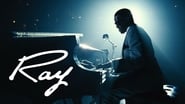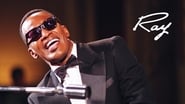Billie Morin
This movie feels like it was made purely to piss off people who want good shows
Portia Hilton
Blistering performances.
Gary
The movie's not perfect, but it sticks the landing of its message. It was engaging - thrilling at times - and I personally thought it was a great time.
Haven Kaycee
It is encouraging that the film ends so strongly.Otherwise, it wouldn't have been a particularly memorable film
fu-avci
Ray is a biographical movie and focusing parts of Ray Charles' private life and music career. Ray Charles is a legendary musician, as many people know. He tried to integrate different kinds of music and helped to social change in American culture. He was lost his sight when he was a kid because of a disease, and he had to learn to live without seeing when his childhood. The movie built two main images. One of them is his little brother and other is his mother. His brother symbolized his fears because he died when he was a child and Ray couldn't save him and blame himself because of his death. And the mother image is symbolized his strong parts, cause his mother was the one of the supporter and teacher about the new life without seeing. Actually, I don't want to give too much specific information about the movie, I want to talk about being a black blind person in 1950's USA. It is important because racism had strong effects on all over the country those years. People were not equal and the black people were discriminated because of their skin colors. So, Ray Charles was the black and blind people in such an environment. Also, the regulations for disabled people were not developed properly, and there was not enough consciousness about being disabled. Therefore, he had to rely on only his remained senses to continue his life. It should be really hard to get used a life without seeing, especially if you know the better option.
chaswe-28402
As presented in this biopic, Ray had a personality that fell well short of merit and likability; even after making allowance for the short straws he was handed from childhood. Some people's character is improved by suffering. Evidently not Ray's. Another reviewer describes him as a drug using, cheating, greedy man who happened to have a great voice. There's obviously more to it, but on balance the picture presented here is not exactly pretty. It is possible, perhaps, that Ray was punishing himself, or suffering from a perverse kind of guilt, for not having saved his little brother from drowning. Perhaps he felt he'd paid for it by going blind. Who can tell ? In any biography the truth gets lost in the past and the re-telling, like tears in rain. I'm not inclined to re-watch this account. The actor did a good job.
bbewnylorac
Generally a very good biopic of a truly gifted artist. The cinematography, locations, lighting and costumes are lush. Even the grotty hotels are richly-lit and full of character. Charles's childhood in Florida, seen in flashback, comes across as a bit of a movie set, but it does clearly put across how very young, but strong and determined his mother, Aretha, was. Even when Ray goes blind at age 7, she urges him to never be "a cripple" - to think of himself as a worthy person and strive to make his way in the world. She only sends him off to boarding school from a passionate belief that education is the key to his success. And she was right. With acute hearing and memory, he could get around without a cane or a guide dog. Still, when he travels right across the US to Seattle to join a band, you get the sense of how very brave he was. Fortunately, that amazing talent was a force to be reckoned with. Jamie Foxx is the perfect actor to play Charles - convincing in every way. Of course a big highlight is that muscly soul music. I most enjoyed the live concert scenes, big and small, where the audience and the musicians feed off each other, everyone having a wonderful time. The drug use and the womanizing are given ample screen time, but the characters involved are always depicted as human, i.e. very flawed, rather than evil. Overall, Ray Charles triumphed in life. His mother would be very proud.
brchthethird
By this point it's pretty hard to do something original with a biopic, and now that I've seen several of them (particularly the musical kind) a pattern has emerged. Typically, they will pick a time period in a person's life/career and focus on a certain personal struggle and how they overcome it. With musicians, this often involves women and substance abuse. 'Tis the same story with Ray Charles. RAY focuses on Ray Charles' beginnings in the music business up through the point at which he came clean off of heroin (around 1966). To round out the narrative, there are flashbacks to his childhood and an extended coda which ties up a significant plot point from before and serves as an epitaph to his life and career (the film came out several months after his death). Because so many biopics follow the same formula, what distinguishes them from one another (other than the subject) is the quality of the performances and the ingenuity with which they are put together, and RAY certainly stands out from the rest thanks in large part to an excellent central performance by Jamie Foxx. The way he inhabits Ray Charles is uncanny at times, although the straightforward dramatic scenes verge on mimicry in a way that stands out more when juxtaposed with the performance scenes. For me, the performance scenes work better because Jamie Foxx was able to capture a realness and immediacy that comes from someone who is intimately familiar with performing music on the stage (as Foxx is also a singer). Beyond that I thought that the editing, particularly in the musical sequences had a certain kinetic energy that brought the performances to life. However, I found it a little distracting that Ray Charles' voice was coming out of Jamie Foxx's body when there was a few early scenes where Jamie Foxx used his own voice to sing. Even still, I got used to it after a while. In general, I thought that everyone gave a good performance, and the film had an excellent ensemble cast. One thing I also thought was done rather well was the hallucinogenic nature of the flashback scenes, which added a layer of artfulness as inner turmoil, with Ray Charles feeling guilty about how his younger brother died. What I felt didn't always work was the general formula and obligatory dramatic moments which hit again and again just how dependent Ray became on heroin. I got a little tired and frustrated with it in WALK THE LINE (although that came out the following year, and followed RAY's playbook) and felt the same way here. Yes, it was a compelling arc to have in a general sense, but it's something that's been played out a little bit too much, in my opinion. Despite the formulaic nature of the plot and story, I had a great time with RAY because of the talented actors who brought it to life, and the energetic and soulful musical numbers. RAY might rely a little too heavily on formula, but at least it's a winning one.









